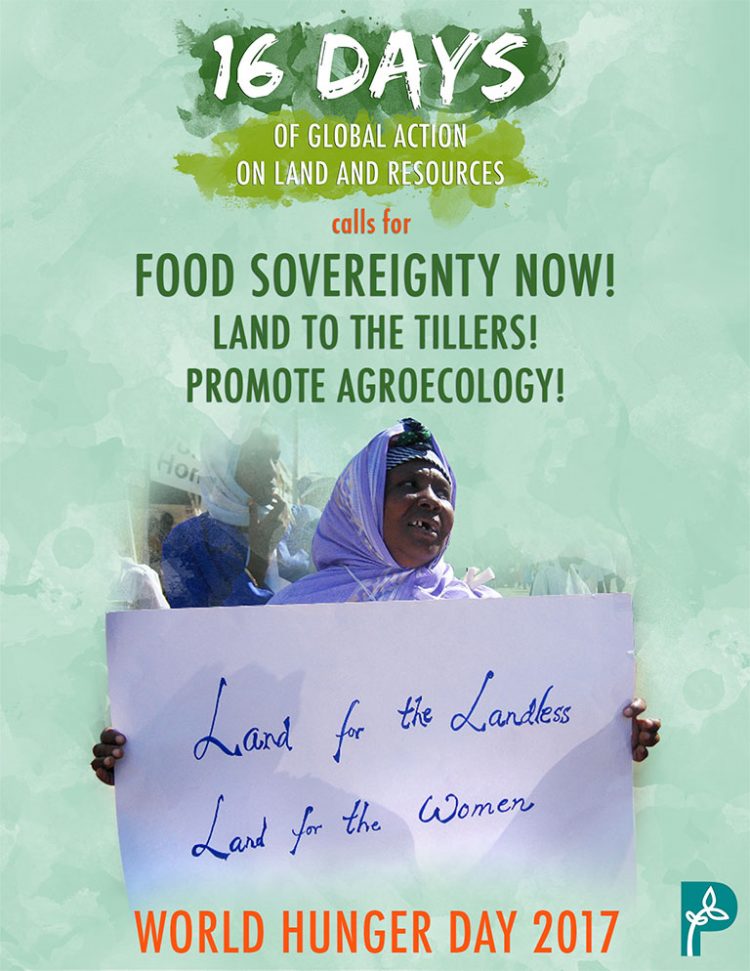PAN Asia Pacific (PANAP) today said that governments must play a central role in supporting small food producers to promote rural development and address forced migration, including of the rural youth. This as the Food and Agriculture Organization (FAO) marks this year’s World Food Day focusing on the theme of migration, food security and rural development.
Several peasant groups in the region, including PANAP partners, are commemorating the event as World Hunger Day. They highlight how agricultural policies and development programs are biased towards big corporate interests and exclude those who directly produce food.
The World Hunger Day is the culmination of the 16 Days of Global Action on Land and Resources on October 1-16. The 16 Days of Global Action on Land and Resources is a series of collective action of rural women, farmers groups, rural youth, movements and advocacy groups from different countries highlighting issues of climate change, pesticides, food sovereignty and agroecology. This year’s theme is “Advance Food Sovereignty and Agroecology! Promote Youth’s Participation in Agriculture!”
In a 2016 report, the FAO noted that the “rural youth are those more likely to migrate in response to the lack of gainful employment and entrepreneurial opportunities in agriculture and related rural economic activities.”
Governments have the duty to ensure that the right to land and resources of farmers, indigenous people, fisherfolk, rural women and youth and other small and marginalized direct food producers is respected. This entails implementing programs and policies that promote, among others, agroecological ways of production within the context of genuine agrarian reform, said PANAP.
The group pointed out that rural poverty and hunger are worsening as farmlands and other rural resources are taken over by corporations. This is further aggravated by conflicts in the rural areas that also massively displace communities. In many cases, these conflicts are actually driven by corporate interests and often with state sponsorship.
Land and resource grabbing and repression force many rural communities to migrate mostly to urban areas within their countries but also to foreign lands. Among those affected are the rural youth who are deprived of opportunities to be productive, PANAP said.
Based on FAO data, 763 million people are internal migrants (2013) while the number of international migrants is pegged at 244 million (2015). A large number of migrants comes from the rural areas where 75% of the world’s poor and food insecure live. Also, a significant portion of them – one-third in the case of international migrants – comes from the youth (i.e. 15-34 years old). Some 65.3 million (2015) were forcibly displaced by conflict and persecution, according to FAO data. ###
Reference: Terence Lopez, terence.lopez@panap.net








Discussion about this post